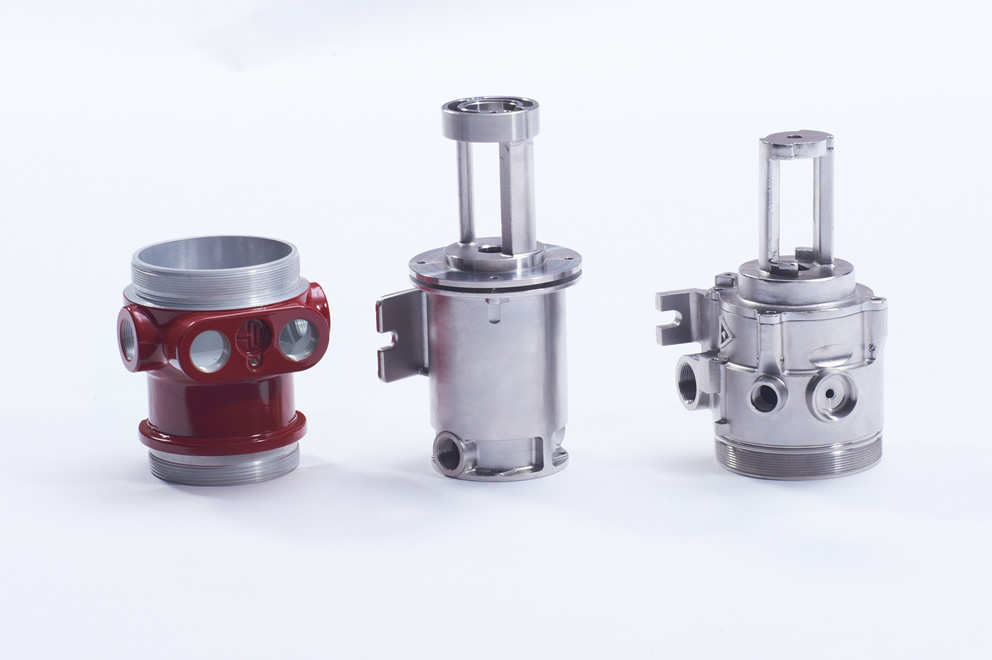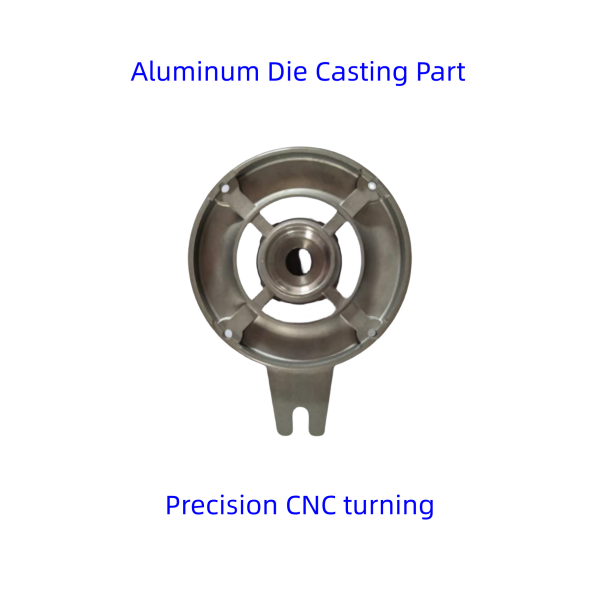Exactly How Factory Provider Enhance Production Performance and Top Quality in Industrial Applications
Shop solutions play a necessary role in improving production efficiency and top quality across numerous industrial applications. By implementing advanced steel spreading strategies, these services assure elements are produced with accuracy and consistency. This not just minimizes preparations however likewise reduces waste, cultivating much better cooperation between suppliers and foundries. The influence of premium elements on functional efficiency raises vital questions concerning the future of commercial production. What developments exist ahead in this evolving landscape?
The Duty of Shop Services in Streamlining Production Processes

Shops frequently offer knowledge in alloy advancement, enabling producers to utilize sophisticated materials that enhance item performance. The cooperation between producers and foundries promotes a better understanding of production needs, leading to enhanced processes and enhanced item styles. By leveraging shop solutions, manufacturers can achieve higher versatility, adjust to changing market needs, and maintain competitiveness in the industry. Generally, the duty of factory solutions is necessary in facilitating an extra cost-effective and effective manufacturing landscape.
Advanced Technologies in Factory Workflow
Ingenious modern technologies are transforming factory procedures, considerably enhancing performance and precision. Automation plays a vital function, with robot systems streamlining repeated tasks such as molding and product handling. Furthermore, advancements in computer-aided style (CAD) and computer-aided production (WEB CAM) systems allow foundries to develop complex geometries with greater precision and lowered material waste.
Moreover, the combination of expert system (AI) and equipment discovering improves top quality control by keeping an eye on procedures in real-time and predicting potential problems before they happen. Making use of advanced products, such as light-weight alloys and compounds, better boosts the performance characteristics of actors items.
Additionally, 3D printing technology is reinventing prototyping and tooling, permitting rapid customization and reduced lead times. Collectively, these sophisticated innovations not only raise manufacturing effectiveness however additionally ensure that the end products fulfill rigid top quality standards, placing foundries at the forefront of modern industrial applications.
Decreasing Lead Times Through Efficient Factory Practices
Reliable factory techniques play a vital duty in minimizing preparations within production environments. By implementing streamlined manufacturing procedures and progressed organizing strategies, makers can boost operations and optimize resource appropriation. These renovations not only speed up output yet likewise contribute to general operational performance.
Streamlined Manufacturing Procedures
Simplifying manufacturing procedures is essential for reducing preparations in the production market. Efficient shop techniques, including enhanced process and resource management, play a vital function in accomplishing this objective. By decreasing waste and improving interaction amongst teams, shops can substantially boost their operational effectiveness. The execution of standard procedures likewise adds to consistent high quality and faster turnaround times, enabling suppliers to react even more promptly to market demands. Furthermore, the combination of advanced innovations, such as automation and real-time surveillance systems, aids in determining traffic jams and assisting in prompt interventions. On the whole, a focus on structured manufacturing processes not just accelerates lead times yet also enhances the overall competitiveness of industrial applications, ensuring that items meet customer assumptions successfully.
Advanced Scheduling Techniques
Efficient production processes normally lead makers to explore advanced organizing techniques as a way to better reduce preparations. By employing innovative algorithms and software program, shops can More Bonuses optimize workflows, lining up manufacturing routines with need forecasts and source accessibility. Methods such as Just-In-Time (JIT) organizing minimize supply expenses while making certain prompt material distribution, thereby boosting functional efficiency. Furthermore, integrating real-time data analytics enables shops to expect possible hold-ups and readjust timetables proactively. This adaptability not only simplifies procedures yet likewise improves general productivity. Collective preparation with providers and consumers can foster an extra synchronized supply chain, more minimizing lead times. Ultimately, these advanced organizing methods empower foundries to accomplish higher efficiency and exceptional quality in their production procedures.
Making Certain Precision and High Quality in Steel Casting
Assuring precision and top quality in metal spreading requires a careful approach that includes every phase of the production procedure. This process begins with cautious style and engineering of the molds, ensuring they can stand up to the molten steel's temperature and pressure. The choice of top quality raw materials is necessary, as contaminations can jeopardize the final product.
When the products are prepared, accurate temperature control during melting and pouring is fundamental to achieve the desired buildings in the actors metal. Keeping an eye on solidification and cooling rates additional guarantees dimensional precision and surface coating.
Quality guarantee practices, such as non-destructive testing and examination, are important to identifying defects early at the same time. aluminum casting. In addition, employing competent personnel that recognize the nuances of steel spreading adds significantly to maintaining high requirements. Overall, these practices jointly enhance the reliability and efficiency of actors components in numerous commercial applications
Lessening Waste and Maximizing Resource Usage

In addition, reusing scrap metal within the shop itself can substantially reduce waste, changing by-products right into functional resources. Lean making principles likewise contribute to throw away decrease by simplifying procedures and removing unneeded actions, resulting in much more effective procedures.
Normal upkeep of tools guarantees peak performance, avoiding break downs that can result in wasted products. By focusing on these strategies, foundries not just lower expenses but additionally add to lasting methods, aligning with the growing demand for eco accountable production approaches in industrial applications.
The Affordable Advantage of High-Quality Elements on the market
Top quality helpful site components offer a substantial competitive benefit in the factory market, where accuracy and toughness are extremely important. Producers that focus on exceptional materials and workmanship can enhance item performance and integrity, bring about boosted client contentment. This benefit is particularly evident in industries such as auto and aerospace, where component failing can have devastating repercussions.
Top quality components often result in reduced upkeep costs and expanded product life-spans, which can be attractive marketing points for possible clients. As market needs expand for sustainable and reliable innovations, the emphasis on high quality ends up being much more vital. these details Companies that buy premium factory services not just enhance their manufacturing procedures but also distinguish themselves from competitors that might compromise quality for expense financial savings. Consequently, the dedication to top quality elements ultimately equates right into a more powerful market placement and long-lasting business success.
Regularly Asked Questions
What Kinds of Materials Do Factory Services Normally Collaborate With?
Shop solutions generally collaborate with metals such as light weight aluminum, brass, iron, and steel, in addition to numerous alloys. They likewise handle materials like porcelains and composites, satisfying varied industrial needs and specifications in producing procedures.
Exactly How Do Shop Provider Impact Overall Supply Chain Management?
Shop solutions substantially improve supply chain monitoring by enhancing product sourcing, decreasing lead times, and guaranteeing constant top quality. Their capacity to offer tailored remedies cultivates partnership amongst stakeholders, ultimately enhancing total operational effectiveness and responsiveness in production.
What Industries Benefit The Majority Of From Shop Providers?
Industries such as vehicle, aerospace, building and construction, and consumer products significantly profit from factory services. These fields count on accuracy spreadings to meet rigorous high quality standards and improve their overall production procedures and product performance.
Are Foundry Services Sustainable and Eco-friendly?
Foundry solutions can be sustainable and ecologically friendly, particularly when utilizing sophisticated modern technologies and procedures - Aluminum Casting Company. Developments such as reusing products, minimizing emissions, and maximizing power usage add to lessening their ecological influence in industrial applications

Just How Can Companies Choose the Right Factory Solution Service Provider?
Firms can choose the ideal factory provider by evaluating know-how, manufacturing abilities, top quality qualifications, innovation utilized, consumer reviews, and sustainability techniques while ensuring placement with their specific project needs and lasting company goals.
Shop solutions play an essential duty in boosting production performance and high quality throughout different commercial applications. The partnership between foundries and makers cultivates a better understanding of production demands, leading to optimized procedures and improved product styles. Reliable foundry techniques play a crucial role in reducing lead times within manufacturing environments. By utilizing sophisticated algorithms and software, foundries can maximize process, lining up manufacturing timetables with need forecasts and source schedule. Companies that spend in top notch foundry solutions not just enhance their manufacturing procedures yet likewise distinguish themselves from competitors who might sacrifice top quality for price financial savings.